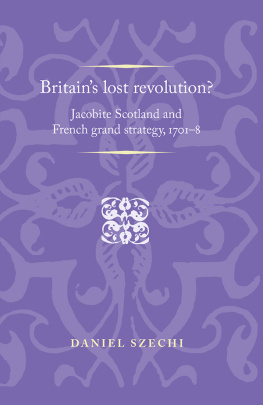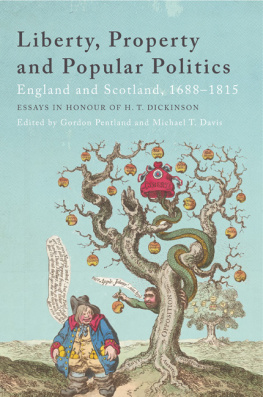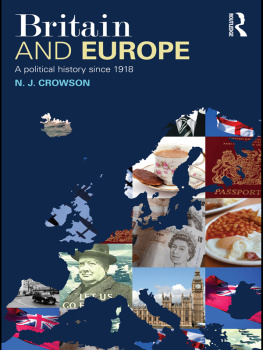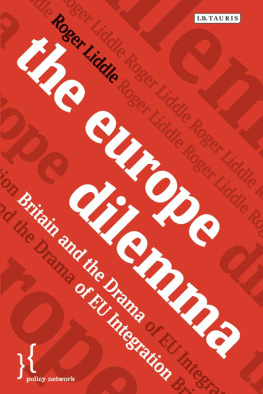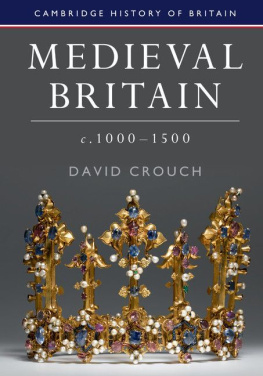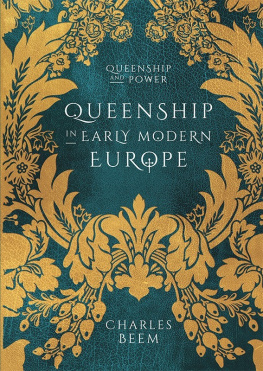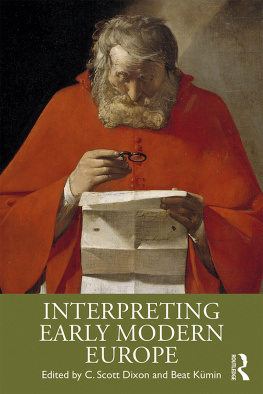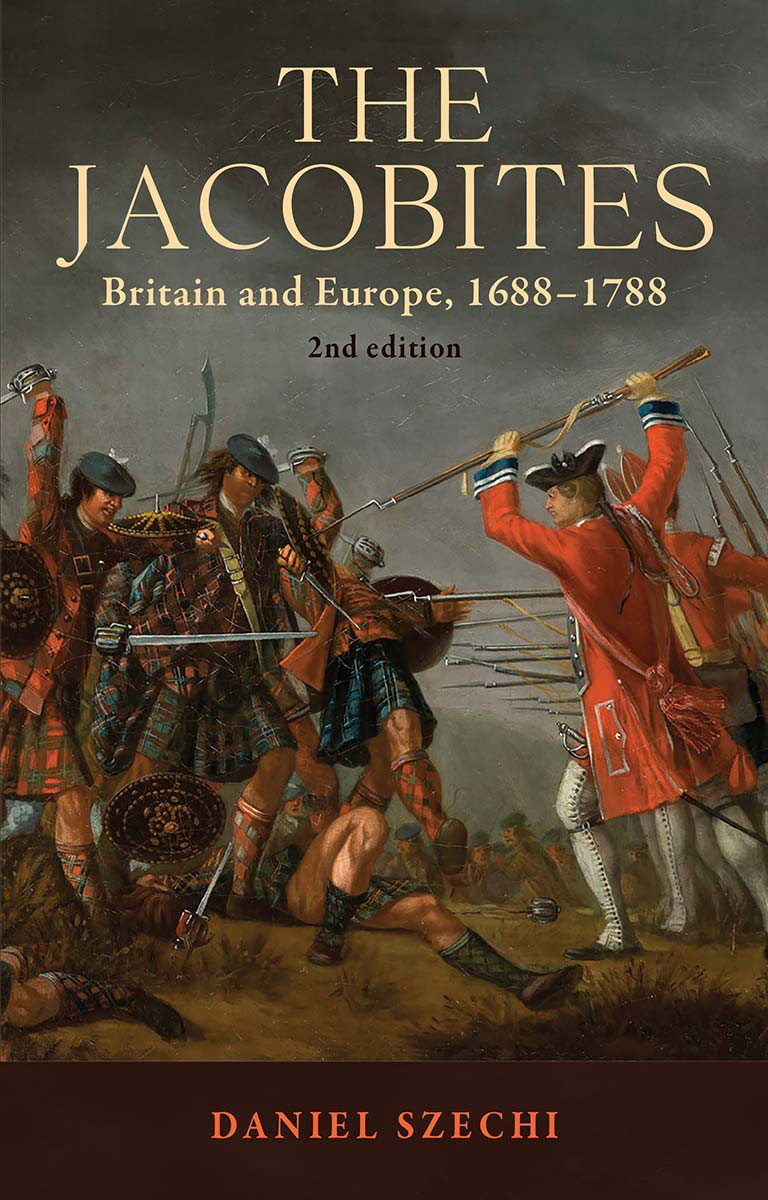The Jacobites
The Jacobites
Britain and Europe, 16881788
2nd edition
Daniel Szechi
Manchester University Press
Copyright Daniel Szechi 2019
The right of Daniel Szechi to be identified as the author of this work has been asserted by him in accordance with the Copyright, Designs and Patents Act 1988.
Published by Manchester University Press
Altrincham Street, Manchester M1 7JA
www.manchesteruniversitypress.co.uk
British Library Cataloguing-in-Publication Data
A catalogue record for this book is available from the British Library
ISBN 978 1 5261 3966 5 hardback
ISBN 978 1 5261 2318 3 paperback
First published 2019
The publisher has no responsibility for the persistence or accuracy of URLs for any external or third-party internet websites referred to in this book, and does not guarantee that any content on such websites is, or will remain, accurate or appropriate.
Typeset in 10/12 Sabon by
Servis Filmsetting Ltd, Stockport, Cheshire
For Jan, who persuaded me I should do this
Contents
For permission to publish extracts and citations in this book I am indebted to Her Majesty the Queen for her gracious permission to use the Stuart Papers; Historic Archives, University of Aberdeen, for permission to cite letters from the Scottish Catholic Archives; and Mrs C. Methuen Campbell for the use of the Penrice and Margam collection held at the National Library of Wales. My thanks are also due to the staff of the Bodleian Library, Oxford, the British Library in London, and the National Records of Scotland and the National Library of Scotland in Edinburgh for their courtesy and patience.
In addition, I owe a particular debt of thanks to Manchester University Press for permission to reuse sections of my book Britains Lost Revolution? Jacobite Scotland and French Grand Strategy, 17018 (Manchester, 2015), and to the many friends and fellow scholars who have encouraged me to write a second edition of this book. Though the bones of the first edition are still visible what follows is a very different work. Historians should not be afraid to change their minds. Winston Churchills famous aphorism about having had to eat his words many times during his long career, but finding them a most wholesome diet, is as true for us as for statesmen on a world stage. Thanks to my editor at MUP, Emma Brennan, this edition is longer and I hope commensurately improved. It certainly takes into account nearly a quarter of a century of new scholarship on Jacobitism, and incorporates my own advancing understanding of the phenomenon. Nonetheless, I have tried to make the subject accessible. If this edition becomes as well thumbed as the copies of the old one on library shelves, or as frequently downloaded as its predecessor went out on loan, I shall be well satisfied.
Abbreviations
| AECP | La Courneuve, Paris, Affaires trangres, Correspondence Politique (Angleterre) |
| AUL | Aberdeen University Library, Special Collections |
| BL | British Library |
| HMC | Historical Manuscripts Commission |
| MS Carte | Bodleian Library, Oxford, Carte Papers |
| NLS | National Library of Scotland |
| NRS | National Records of Scotland |
| Stuart Papers | Royal Archives, Windsor, Stuart Papers |
Dates, spelling and punctuation
Until the adoption of the Gregorian calendar on 2 September 1752 the British Isles used the Julian calendar, which was ten days behind the rest of Europe (except Russia) in the seventeenth century and eleven days behind in the eighteenth century. All dates given below up to 2 September 1752 are therefore either ten or eleven days behind most of their European counterparts, but with the beginning of the year dated from 1 January rather than 25 March, the official date of the new year in the three kingdoms (England, Ireland and Scotland) up to 1751. All of the correspondence and documents cited below stemming from continental locations has therefore had the old-style, British Isles, date added in the following form: 6/17. Thus a letter written in Paris on 14 May 1745 would be cited below as having been written on 3/14 May 1745.
The spelling and punctuation of all quotations and documents have been modernised wherever this helps elucidate the meaning of the text. Commonplace contractions and abbreviations have all been silently expanded.
Nomenclature
Throughout the second edition of this book I refer to the son of King James II of England and VII of Scotland as James III and VIII. This is not intended as any kind of political statement, but as a simple recognition of a fact: he was the legitimate and oldest son of the reigning king at the time of his birth and was proclaimed Prince of Wales shortly afterwards. He was also at various times recognised as a genuine king by most of the great powers of Europe and a large minority of the population in the British Isles. The only reason he was ever dubbed the Pretender by post-Revolutionary Parliaments was silently to impugn his claim to the throne after he was retrospectively excluded from the succession by laws passed by those same Parliaments. The original grounds for this exclusion (and in part for his fathers deposition) was that King William III and IIs supporters claimed that the new-born Prince of Wales was not the son of James II and VII, but a suppositious child smuggled into the royal bedchamber in a warming-pan. This, they asserted, was the culmination of a Catholic conspiracy by which the allegedly impotent/diseased King James would be provided with a male heir who would in due course persecute Protestants throughout the British Isles in order to force their conversion to Catholicism.
In contemporary terms this conspiracy theory was necessary to justify the invasion of England and the overthrow of King James by William, Prince of Orange, and a Dutch army supported by armed uprisings by Englishmen of all ranks of society across the whole of the country. This was because a rebellion in support of a foreign invader was an affront to English national pride and went directly against the teachings of the Church of England, the church regularly attended by the great majority of the population. Only the most real and present danger to Protestantism and the Church of England could justify such an egregious sin. The entire warming-pan story was, however, completely false. To use modern terminology, it was fake news.
As was customary, James III and VIIIs birth was witnessed by dozens of nobles and courtiers (Protestant and Catholic) from all over the British Isles, to say nothing of servants, midwives and soldiers standing guard. And even though he used the story to justify his seizure of the throne King William himself did not believe it, as he showed when he secretly discussed with Louis XIV taking the Prince of Wales as his heir. The proposal came to nothing because James II and VII refused to allow his son to become a[c]complice to his unjust dethronement, but the fact that William entertained it at all is telling.
Thus what happened in the winter of 16889 was the overthrow of one king of England (he was not deposed in Ireland and Scotland until later) and his replacement by another, retrospectively endorsed by Acts of Parliament. This was nothing exceptional in English history: leaving aside the bloody family politics of the Norman and Angevin kings, Edward II was deposed in favour of Edward III, Henry IV seized the throne from Richard II, Edward IV overthrew Henry VI (twice), Richard III deposed Edward V, and Henry VII defeated and killed Richard III. Each of these usurpations was retrospectively endorsed and legitimised by Acts of Parliament. Yet historical orthodoxy has had little problem in recognising the titles of all these monarchs, no matter whether they were actually crowned or not (viz. Edward V). Charles I and Charles II were also unkinged by a Parliament, yet they are still accorded their titles even, as in Charles IIs case, when they had been legally deposed by a revolutionary Parliament and were in exile.


